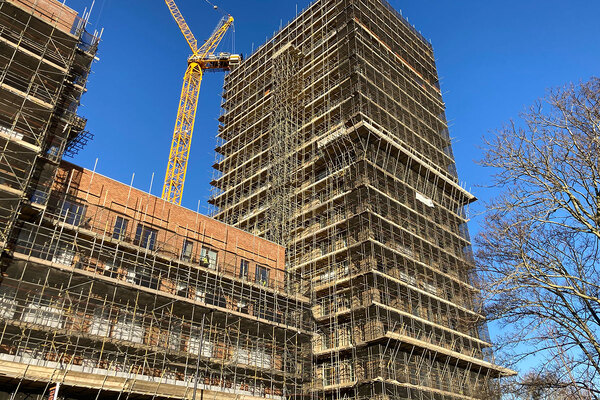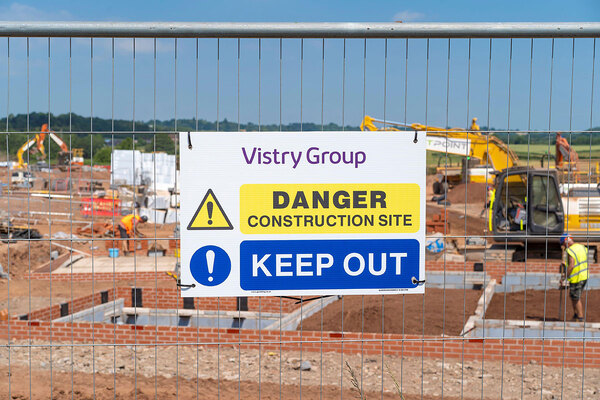You are viewing 1 of your 1 free articles
‘Bleak’ prospects for SME house builders due to planning delays and rising costs
The situation is “even bleaker than ever” for small and medium-sized house builders, according to the UK’s industry body, as firms struggle to stay afloat amid planning delays and rising costs.

Nine in 10 SME house builders said delays in getting planning permission are stopping them from growing, while a similar figure said local planning authorities are under-resourced, according to the latest industry-wide survey.
Nearly half of SME developers also said the cost of getting planning permission has risen more than 30% in three years, even before a recent rise in planning fees last month, according to the Home Builders Federation’s (HBF) annual industry poll.
Alongside the hike in fees, the government announced a £24m Planning Skills Delivery Fund to clear backlogs and help get the right skills in place.
Almost three-quarters said interest rate rises have been a major obstacle in the past year, while just 13% think the government’s approach on housing and planning was positive for first-time buyers.
This was down from 39% in 2022.
It comes after the government confirmed changes to planning laws in December that ended the obligation on local authorities to maintain a rolling five-year supply of land for housing where local plans are up to date.
The federation also cited the closure of the Help to Buy support scheme for first-time buyers in March 2023, plus increases in planning fees, as government policy that was hindering firms.
“Planning remains the number-one barrier,” said Stewart Baseley, chair of the HBF.
“While the homebuilding industry in its entirety has faced numerous challenges in recent years, it has been particularly tough for SME developers.”
“And now, with all the economic uncertainty and higher mortgage rates plus a government that seems to be pursuing a more anti-development agenda, the situation for SMEs is bleaker than ever.”
Rowland Thomas, managing director of Close Brothers Property Finance, added: “SME house builders are particularly exposed to delays caused by under-resourced local authorities and the inefficient, embedded processes as they often don’t have the time or funds to navigate the system. If they aren’t building, they aren’t earning.”
When the government announced the changes to the planning system in December, housing secretary Michael Gove said he would take tougher action on councils without local plans and those that frequently overturn recommendations from planning officers.
Some in the sector welcomed the “greater accountability on local authorities” and Mr Gove’s promises of a faster planning process.
However, others said the planning reforms would be “a blow to those desperate for somewhere to call home”.
Mr Gove also said he would publish league tables of local planning authorities by speed of decision-making and said increased planning fees must be spent on improving the planning service for developers.
Sign up for our development and finance newsletter
Already have an account? Click here to manage your newsletters











